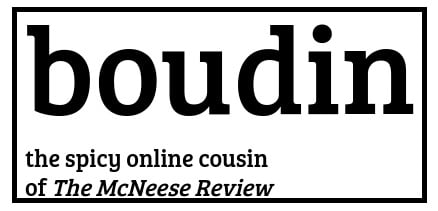Ticket to Ride
Angela Ball
__________
Why did I not ask my father to stop at the drive-in to get my sister the foot-long hot dog she had asked for? Because when we neared it, “Ticket to Ride” was playing on the radio, and I couldn’t speak. Why not? The song would be played again and again, and I had the 45—why did I have to hear it then?
I think it was that fate had chosen me, on that evening, to be a listener, to exist together with those voices, those guitars and drums, handclaps and tamborines. The song demanded nothing less than total receptivity. It was indeed important, The Beatles’ 7th British and 3rd U.S. Number-One hit, and the first of the group’s songs to employ a drone or burden—an A-chord sustained. The main guitar riff was played by George Harrison on a Rickenbacker 12-string. These facts are good to know, but “Ticket to Ride” existed and exists to create a reaction, the sense that passion creates passion, both in the song and in all who hear it.
What is a “ticket to ride”? According to Paul McCartney, it is a British Railways ticket to the town of Ryde on the Isle of Wight. According to John Lennon, it is health card allowing prostitutes in Hamburg, Germany to have sex, or “ride.”
For me it was a ride to another country, an adulthood involved with men in ways omitted from the films I had seen but included in books I had read. The song’s phrase “living with me” meant nothing at the time. Sex, I imagined, was a series of gestures that sometimes meant love, sometimes disgust. I was keen for all the good meanings and thought that studying their presence in The Beatles’ songs would hurry them my way. The chords were longing, hunger, and fulfillment, squeezed together and released.
That night’s radio waves have travelled at least 500 trillion kilometers of our Milky Way. I can’t help thinking that, because I listened, I am somehow with them. They have no intention of stopping.
___________
Playlist song: The Beatles, “Ticket to Ride”
__________
Angela Ball’s poems, translations, and essays have appeared or are forthcoming in Boulevard, Poetry, The Paris Review, The Atlantic Monthly, Ploughshares, The North American Review, The Partisan Review, The New Yorker, Grand Street, Field, Colorado Review, The New Republic, The Bennington Review, and elsewhere. Her sixth and most recent book of poetry is Talking Pillow (University of Pittsburgh Press, 2017). She teaches in the Center for Writers, part of the School of Humanities at the University of Southern Mississippi in Hattiesburg, where she lives with her dogs, Miss Bishop and Boy.
__________

To learn more about submitting your work to Boudin or applying to McNeese State University’s Creative Writing MFA program, please visit Submissions for details.
Posted in All Music: Espressivo '24 and tagged in #boudin, #fiction, #flashfiction, #music
